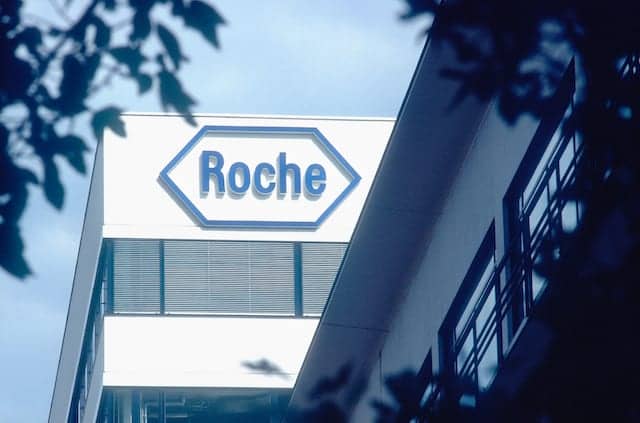FDA has granted breakthrough device designation to Roche’s Elecsys GDF-15 assay as a companion diagnostic (CDx) in cancer treatment. This in vitro diagnostic immunoassay is intended for measurement of growth differentiation factor-15 (GDF-15) in cachectic patients 18 years of age and older with solid tumors for treatment with the investigational drug PF-06946860 from New York-based Pfizer.
Cachexia is a metabolic disorder and comorbidity that occurs with several chronic diseases including cancer, heart failure, chronic obstructive pulmonary disease (COPD), and chronic kidney disease (CKD). It impacts more than 30 million people globally. Cachexia manifests as marked involuntary body weight loss, muscle atrophy, and reduced appetite, progressing to significant functional impairment and increased risk of death. Elevated GDF-15 is associated with cachexia in cancer patients. Cachexia is a highly prevalent complication of cancer, affecting between 50% and 80% of all cancer patients. This range depends on the tumor type, the patient response to tumor progression, and on individual body type.
“We are pleased to partner with Pfizer to address this unmet medical need in oncology through strong companion diagnostics,” says Thomas Schinecker, CEO Roche Diagnostics. “The FDA BDD grant for the Elecsys GDF-15 assay shows the importance of these strong partnerships. The ability to detect elevated GDF-15 in patients who are experiencing weight loss may provide a precision-medicine approach to identifying patients likely to respond to a GDF-15 therapeutic treatment.”
Elecsys GDF-15 is a quantitative serologic, two-incubation-step electrochemiluminescence immunoassay (ECLIA) using the sandwich test format for the detection of GDF-15 in human serum. The Elecsys GDF-15 assay is indicated as an aid in identifying cachectic patients 18 years of age and older with solid tumors for treatment with PF-06946860. The electrochemiluminescence immunoassay “ECLIA” is intended for use on cobas e immunoassay analyzers. GDF-15 has CE approval in several intended uses in cardiology including risk prediction of major bleeding events of atrial fibrillation patients, risk stratification of patients with acute coronary syndrome or chronic heart failure.
For more information, visit Basel, Switzerland-based Roche.





